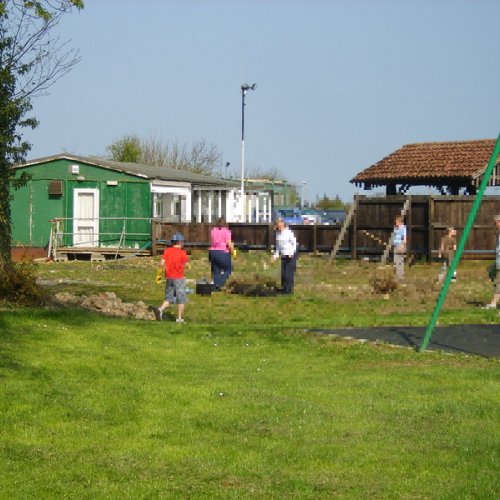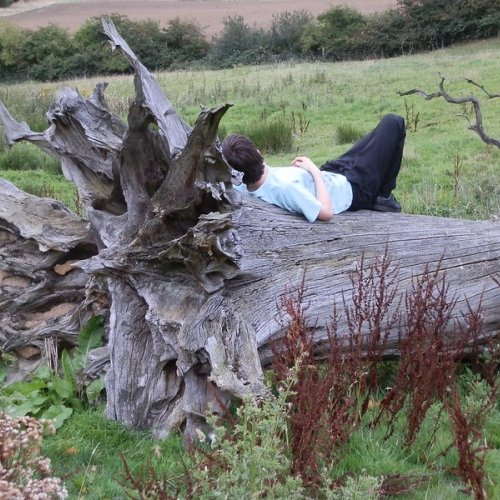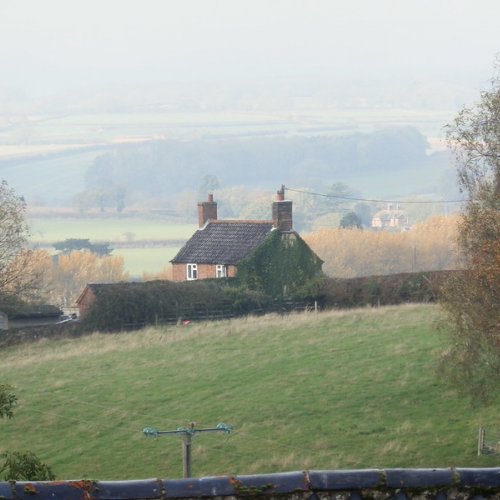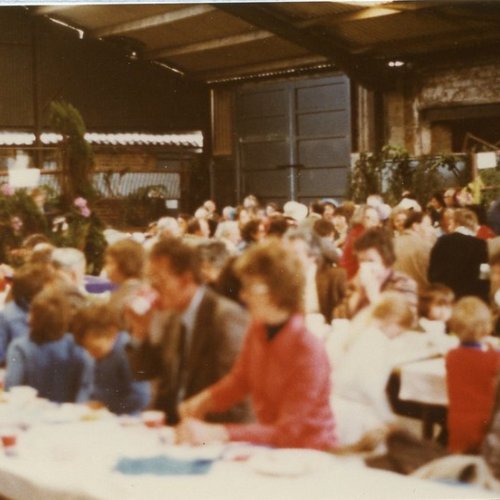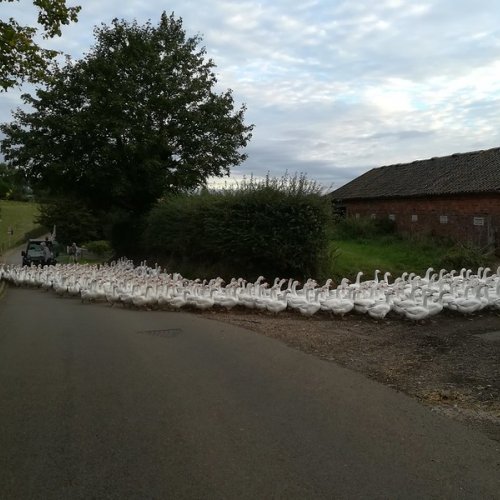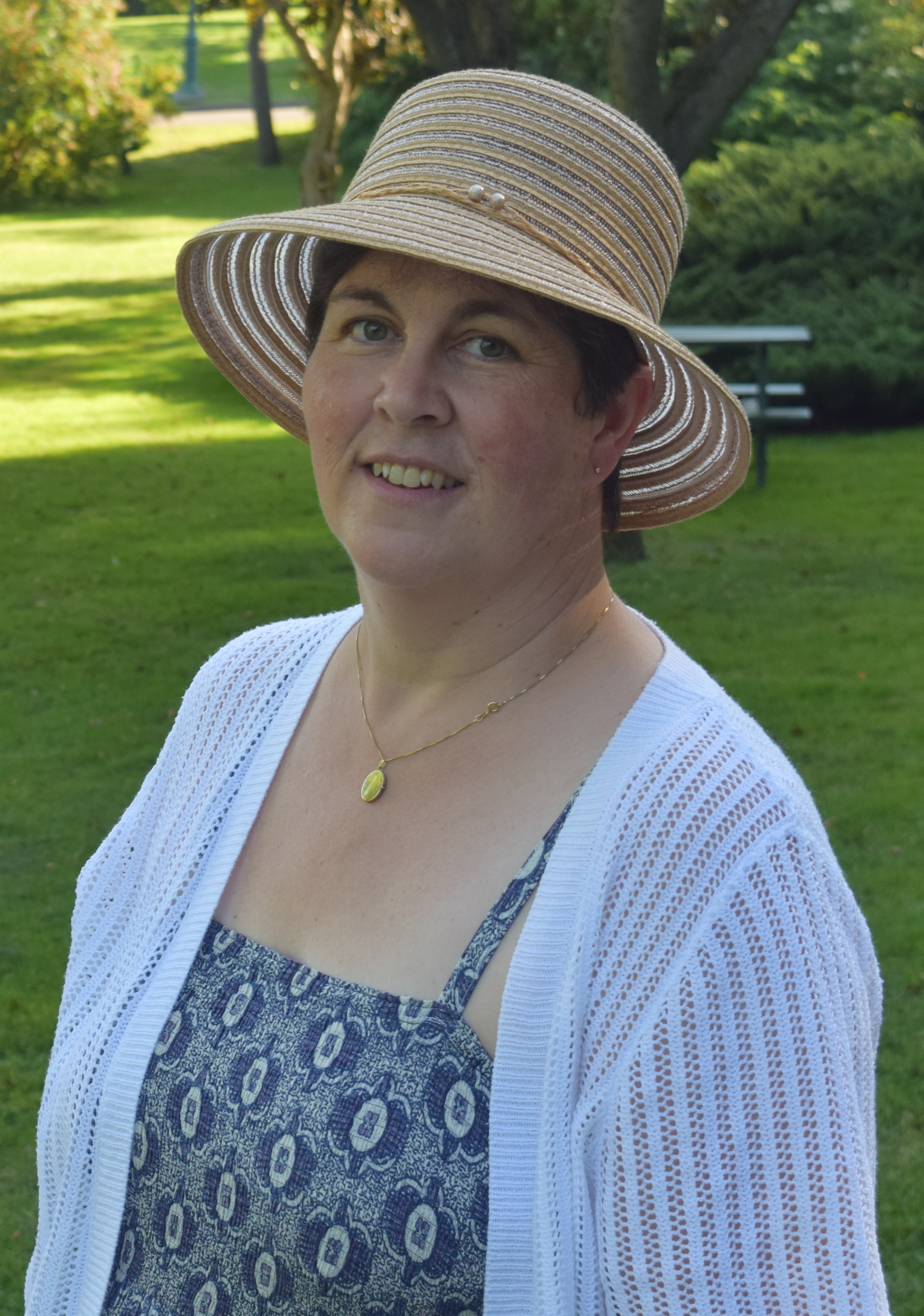Walking around the village this morning was an eerie experience. While I braved the cold wind for my daily exercise, all the cheery social-distancing walkers of previous days were holed up inside. The normally busy main road was disturbed only by the occasional rumble of a vital lorry delivery. There was no cheery chatter of children in the schoolyard, no parallel chatter of the geese that inhabit the fields in the centre of the village from May to December. In the absence of humanity, the chorus of wild birds was deafening: a robin singing from a high branch, jackdaws circling in the churchyard sycamores, a lone crow sweeping noisily across the valley, the red kite’s space-invader peeoow, peeoow against an underlying buzz of sparrows and dunnocks in the hedges.
I crossed the main road, checking for traffic only as an afterthought in a way I haven’t done for forty years. Looking along the abandoned tarmac, a distant memory re-surfaced of an old man named Jack who died when I was still in primary school. He used to walk down the middle of this A road, brandishing his walking stick at the cars and lorries that dared to invade his domain. He walked that route every day of his long life and saw no reason to step aside for such new-fangled invaders. What would he make of the 100+ lorries that hurtle through the village every hour on a normal 21st century morning?
Drawn into the past by the anachronistic silence of the road, I reflected on the other ways in which this pandemic has affected our village and, in particular, the stark contrast between the imposed isolation of quarantine and the renewal of a sense of community that has long been in decline.
When I was four, my family moved to a cottage on the edge of this village from a maisonette in Corby (steel town). My earliest memories from before the move were of playing in the street with other children in an area now bordered by busy roads. There was no adult supervision and no sense of imminent danger, just fun and the inevitable calling in for tea at the end of the day. In my new home my horizons expanded into a Famous Five world of fields, woods and streams, of popping next door to watch Doctor Who with our elderly neighbour, Mrs Cobley. At that time it wasn’t strange for a little girl to enjoy sitting and eating Madeira cake with a lone pensioner, listening to stories of past times. Everyone in the village knew everyone else and always said hello when they met in the lane. When we were cut off by snow, my mother and the others in the village doubled up on their cooking and tramped through the drifts to reach neighbours who usually received meals-on-wheels.
I returned to this village after an absence of 20 years and a particularly difficult experience of isolation and loneliness living in Pretoria. My husband’s new job, working for the South African Government, did not include any ex-pat provision of a network that families could slot into, and our visas explicitly banned me from working. From the wild hills of the Scottish Borders I found myself holed up behind eight-foot high walls, topped with razor wire, trying to write up a thesis with email support from my supervisor over the dial-up internet. I anticipated that having a three-year-old son would provide social openings, but I was new and didn’t fit any of the South Africans’ boxes; my friendly smiles at the nursery gates were met with suspicious glances and dropped heads. There was no possibility of meeting the neighbours either, no cheery, ‘Hello,’ in passing. White people in Pretoria only ever walk in the streets if they are power-walking in lycra. They climb into their vehicles in car ports defended by heavy bars that slide aside at the flick of a key, and don’t get out until they are safely within an equally protected car park. I never saw our neighbours’ faces, let alone found an opportunity to smile and say, ‘hello’. On sunny afternoons, our beautiful wide jacaranda-lined street was the living space for an army of maids and gardeners, chatting and sleeping through the lunchtime heat, but they were equally suspicious of a white stranger who didn’t belong. I found myself walking past them to the local mall just so that I could talk to the shop assistants. At times I just screamed and howled in lonely misery until my throat was raw.
It was during this time that I developed an appreciation and longing for the community that I had known as a child. When the offer came for my husband to take up a post in a university near my parents’ home, I couldn’t believe my luck. We bought a house in my home-village. Overnight I went from being the mad woman who smiles at strangers to ‘Helen’s daughter.’ When she was younger, my mother was the sort of person who is involved in everything, from setting up the village play-group to being head of governors for the village school and running the local Girl Guides. As Helen’s Daughter, it was not long before I was asked to become a trustee of the village charities and then to stand for the parish council. A role that, ‘only involves meeting once every 6 weeks’, multiplied into numerous meetings as I was nominated to be parish council rep for x, y and z. Desperate to belong again, I joined the village school’s parent group, the local archaeology group, a community choir . . .
Within a few months I fell pregnant with my daughter, but the demands on my time still continued to mount and rapidly became overwhelming. I just didn’t know how to say no and found that once you are identified as a willing and dependable shoulderer of other people’s problems, saying no can result in some pretty unpleasant kickbacks. My father’s health was deteriorating, leading to numerous panicked midnight calls and drives into hospital behind blue lights, but it wasn’t until my mother fell ill too that I was finally able to draw a line and resign from everything.
My community accepted that I needed to look after my parents, but I needed that ‘excuse’ too. What I couldn’t see at the time was that I was only able to allow myself to resign my roles by replacing one set of responsibilities with another. Stopping in order to care for myself was not an option. After all, I was still a nurse, despite having given up my registration, and part of being a nurse is being able to shoulder limitless responsibilities without complaint. I needed to be needed. I needed to have a place in a community.
Gradually, the new responsibilities snowballed too and, worried that my caring roles would lead to a permanent stalling of my career, I decided to return to work on top of everything else. I took on a job coordinating a volunteer programme that built communities through teaching food growing. I loved it, but it shouldn’t have come as a surprise when my health crashed, shortly after my father’s death. It felt like the end of the world as I resigned from my job, but actually it was the beginning of a new one as I reviewed my path to fibromyalgia, recognised where I had gone wrong and began to navigate the line between connection with others, a place in the world and caring for myself.
Today, I am in isolation again, but this is a world away from the desperate isolation of Pretoria because most of the rest of the world is in isolation with me. This is an isolation that has led to the most incredible explosion of connection and community building. People lucky enough to be quarantined with family are suddenly much more aware of those who are alone, lonely and vulnerable. How privileged I am to be in that position! I share in the global compulsion to reach out to friends and acquaintances I might normally only contact at Christmas. I am rapidly reaching the point of overload with social media postings and WhatsApp alerts. Sometimes I just wish I could be alone!
In my isolation I am now faced with a new challenge on my road to recovery: that of holding back the urge to fling myself into the resurgence of community necessitated by the coronavirus threat. My village has grown over the years, with new houses and new owners of old houses. There is still a sense of community, but there are multiple communities, which tend not to overlap. As a mum, I met lots of other parents in the school’s playground, but there were still many strangers I saw in the lanes who never acknowledged my existence. The changes were encapsulated in the discovery that as charities trustees we could no longer be sure that we had identified every new widow to add to the Christmas disbursements list.
Now, overnight, everyone says hello and asks how you are. We lost our village shop at Christmas through a lack of support, but with the coronavirus pandemic our village pub has transformed at breakneck speed to fill the gap, delivering take-aways, providing free lunches for children unable to access free school meals, sourcing supplies for first a veg-box scheme and then a tiny shop, lending out board games and books . . . A village Facebook page sprang up overnight to coordinate the many offers of help, providing me with names to put to the faces I see out and about and a means of contacting them. Within a couple of days, almost every house in the village was sporting a bright green square of paper in a window that declares, ‘We’re alright,’ the red ‘Help!’ square on hand, just in case. Those who brave the cold now walk, heads up, checking the windows. Each green message to the world gives me a lift, a reassuring knowledge that we are still connected.
As a parish councillor I sometimes wondered how we would manage in a major crisis like this and now I am finding out. It is strange not to be at the forefront of things, but I am thankful for my daughter’s cough, which placed me in self-isolation from the beginning and forced me to hold back. I have had two weeks in which to reflect and to work together with (not for) my family to review our position, to stock-take and plan. Now that I am relatively free again, I will still offer my time and talents to others, but I have had time to see that I am not needed. I can continue to care for myself and have found that others are there to care for me too, if I will let them.
